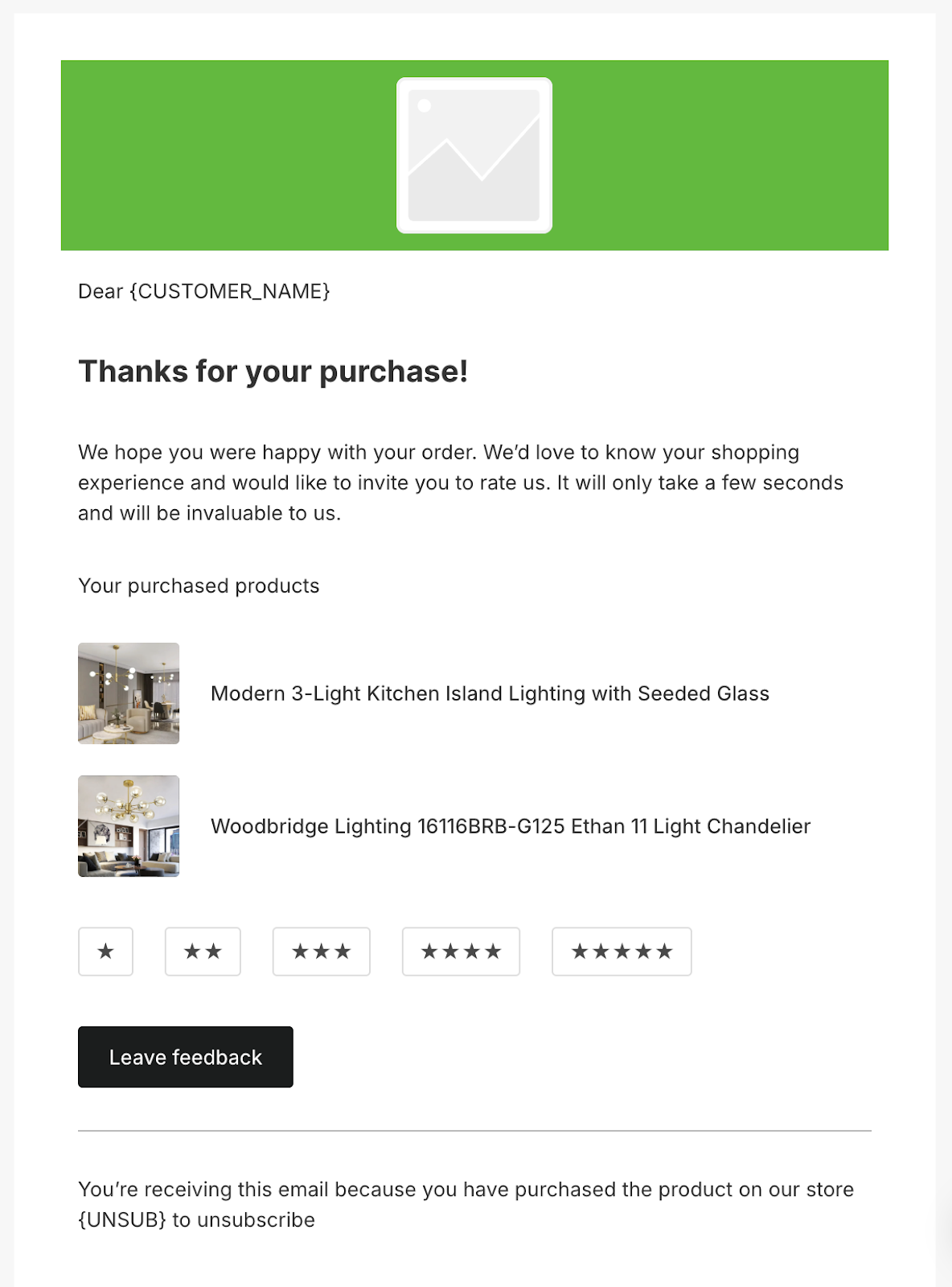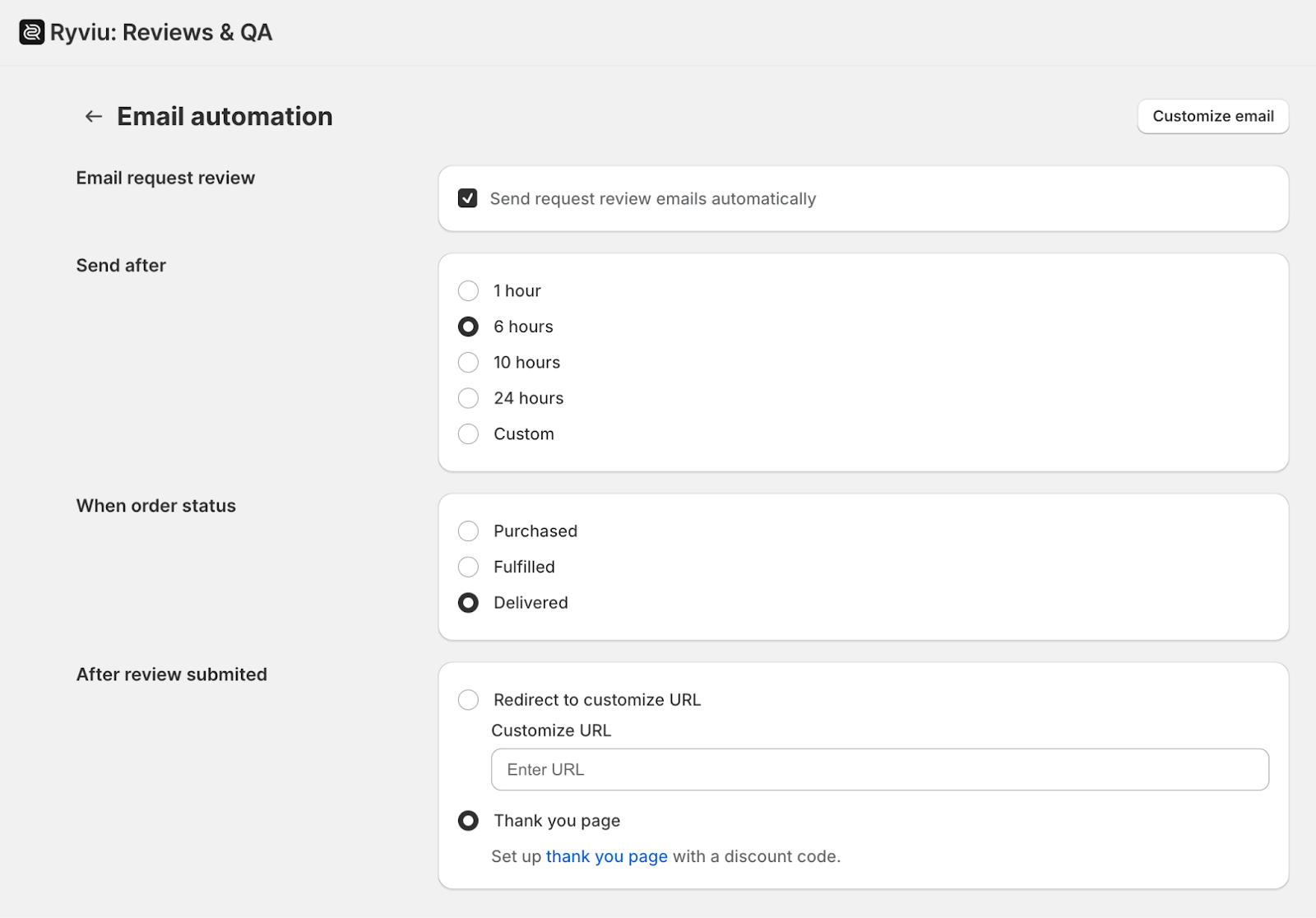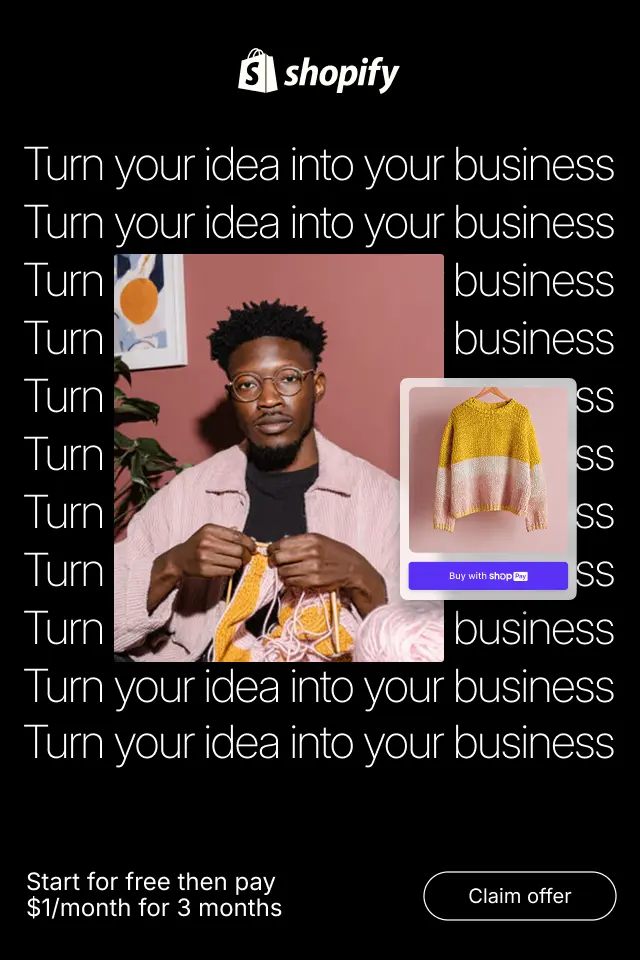
Following up with your customers or leads can make or break a sale. Whether you're running an eCommerce business or managing a service-based company, the way you engage after the first interaction greatly impacts your conversion rates. Many businesses lose potential revenue simply because they don’t follow up, or worse, follow up poorly.
In this article, we’ll dive into why follow-up strategies matter, and then explore the 8 best follow-up strategies to boost sales, with real-world examples and tips on how to apply them using Ryviu, a powerful reviews app designed to increase trust through product reviews and Q&A.
Think about your own shopping habits. How often do you buy something the first time you see it? Probably not very often. Most people need time to consider their options, compare products, and gain enough trust in a brand before making a purchase. This is why follow-up matters.
In fact, research shows that only about 2% of sales occur during the initial point of contact. The other 98% happen after multiple interactions, often five or more follow-ups. This clearly shows that follow-up isn’t optional; it’s a crucial part of the sales journey.
Following up is more than just nudging someone to buy. It's a way to create multiple meaningful touchpoints with your potential or existing customers. Every follow-up is an opportunity to educate, reassure, offer support, or re-engage someone who might otherwise forget about your brand.
Here’s why following up is essential:
Now, let’s explore the top 8 best follow up strategies that may help you increase sales for your store.
Following up with customers after they make a purchase builds trust and encourages repeat sales. A simple “Thank You” email can go a long way, but you can go further by adding value. Include order details, estimated delivery dates, and tips on how to use the product. You might also add a short survey to collect feedback or suggest complementary products. To further ensure these follow-ups reach real customers, Form Guard validates email entries right at the point of form submission, preventing fake or mistyped addresses from entering your system.

For example, if a customer buys a coffee machine, send them an email with maintenance tips and a list of your best-selling coffee beans. This shows you care about their experience beyond the initial sale. Follow-up emails also keep your brand fresh in their mind.
Using tools like Ryviu, you can even share product review requests in these follow-ups, encouraging customers to leave feedback that boosts social proof for future buyers.
Automation ensures your follow-ups happen consistently, without relying on manual reminders. An automated campaign can be triggered by specific actions, such as making a purchase, abandoning a cart, or signing up for a newsletter.
This approach saves time and ensures no customer slips through the cracks. For instance, an eCommerce brand could set up a 3-email series: Day 1 after purchase (thank you + receipt), Day 5 (how-to guide), and Day 14 (review request + related product offer).
Automation also allows for personalization at scale. Instead of writing every message manually, you can use dynamic fields to insert the customer’s name, purchase details, or recommendations based on their browsing history.
Besides, you can integrate automated review requests into your email flow. By sending emails automatically, you can make sure all customers receive timely prompts to share their experience, helping you gather reviews faster and improve credibility effortlessly based on your settings.

Following up too often can overwhelm or annoy customers, leading to unsubscribes or negative impressions. The key is finding the right balance, enough to keep your brand top-of-mind without feeling intrusive.
A good rule of thumb is to space follow-ups at least a few days apart for warm leads and a week or more for cold leads. For example, if someone browses your store but doesn’t purchase, you might send one email after 24 hours, another after 3–5 days, and a final reminder after a week.
You should also consider your product type to arrange times to follow up, too. For example, high-value purchases (like furniture) require more time between touchpoints than impulse buys (like cosmetics).
Generic follow-ups are easy to ignore. Personalization makes customers feel valued and understood. Use their name, reference their past purchases, and offer tailored recommendations.
For example, if a customer recently bought running shoes, you could follow up with an email that says:
"Hi Sarah, we hope your new sneakers are hitting the pavement nicely! Here are some running accessories that might make your workouts even better."
Personalization can extend beyond emails. You might send a targeted social media ad featuring related products, or a text message with a special discount on items they’ve shown interest in.
You can also try displaying product reviews that match the customer’s purchase, increasing the likelihood of cross-selling. Showing reviews from buyers with similar preferences creates a sense of relevance and trust.
Not all customers respond to the same communication method. Some prefer email, others might engage more with SMS, social media, or even live chat. By diversifying your channels, you increase your chances of connecting.
For example, if a customer doesn’t open your follow-up email, you might send a quick, friendly message on Facebook Messenger or sms. Similarly, you could retarget them with an Instagram ad showcasing related products or reviews from other happy buyers.
The key is consistency, maintaining a unified tone and brand voice across all platforms.
Long, overly detailed follow-ups can discourage customers from reading. Your goal is to capture attention quickly, convey value, and make it easy for them to take the next step.
For instance, instead of a lengthy email full of text, use a short headline, a friendly greeting, one main offer or message, and a clear call-to-action. Example:
"Thanks for your recent purchase! Here’s a 10% discount on your next order, valid for the next 7 days. Redeem it here: [link]."
Keeping things short doesn’t mean being vague. Be clear about why you’re contacting them and what you want them to do.
Ryviu can help simplify your follow-ups by providing direct review request links or compact review summaries, so customers can act in just one or two clicks.
Timing can make or break your follow-up success. Too soon, and the customer might feel rushed. Too late, and the excitement fades.
For example, if you’re asking for a review, sending the request right after the product arrives might be premature, they haven’t had time to use it. Waiting 5–7 days gives them enough experience to write something meaningful.
Similarly, sending a discount offer right before a customer is likely to run out of a consumable product (like coffee or skincare) increases the chance of a repeat purchase.
Ryviu’s scheduling email automation makes it easy to set these precise follow-up times. You can ensure that review requests, product tips, or upsell offers hit the inbox exactly when they’re most likely to be effective.
Speed matters when following up with potential customers. Studies show that responding to a lead within 5 minutes can increase conversion rates by over 400%. Delayed replies risk losing their interest or sending them to competitors.
For instance, if a customer asks a question via your website’s live chat, replying immediately not only improves their buying experience but also builds trust. Even if you don’t have the full answer, acknowledging their query promptly is crucial.
Quick responses are especially important for hot leads, those who have just shown interest by signing up, downloading a guide, or adding items to a cart.
One of the most effective post-sale follow-ups is asking customers for their feedback, and Ryviu makes this process effortless.
With Ryviu, you can automatically send review request emails right after a customer has had time to experience your product. This ensures your request feels timely, personal, and relevant. You can customize the message, add your branding, and even include direct links that make it easy for customers to leave a review in just a few clicks.
These reviews don’t just provide valuable insights, they also act as powerful social proof for future buyers. By collecting and displaying authentic customer feedback on your product pages, you boost trust, increase conversions, and encourage repeat purchases.
By applying these follow up strategies, you can increase both sales and trust for your store.


Without a structured approach, reviews can create confusion instead of confidence. The following strategies explain how to manage reviews effectively across large Shopify catalogs while maintaining clarity, trust, and scalability.
This article breaks down the impact of star ratings and written reviews at every funnel stage, from awareness to post-purchase, and explains how to use them strategically rather than treating them as interchangeable signals.
Well-optimized cart page CTAs do more than encourage checkout. They reassure customers, remove friction, and provide subtle guidance that helps shoppers feel confident about moving forward. When crafted strategically, these CTAs can significantly reduce abandonment rates, increase average order value, and create a smoother buying experience. This article explores the most effective cart page CTAs for eCommerce stores and explains how each one contributes to higher conversions.